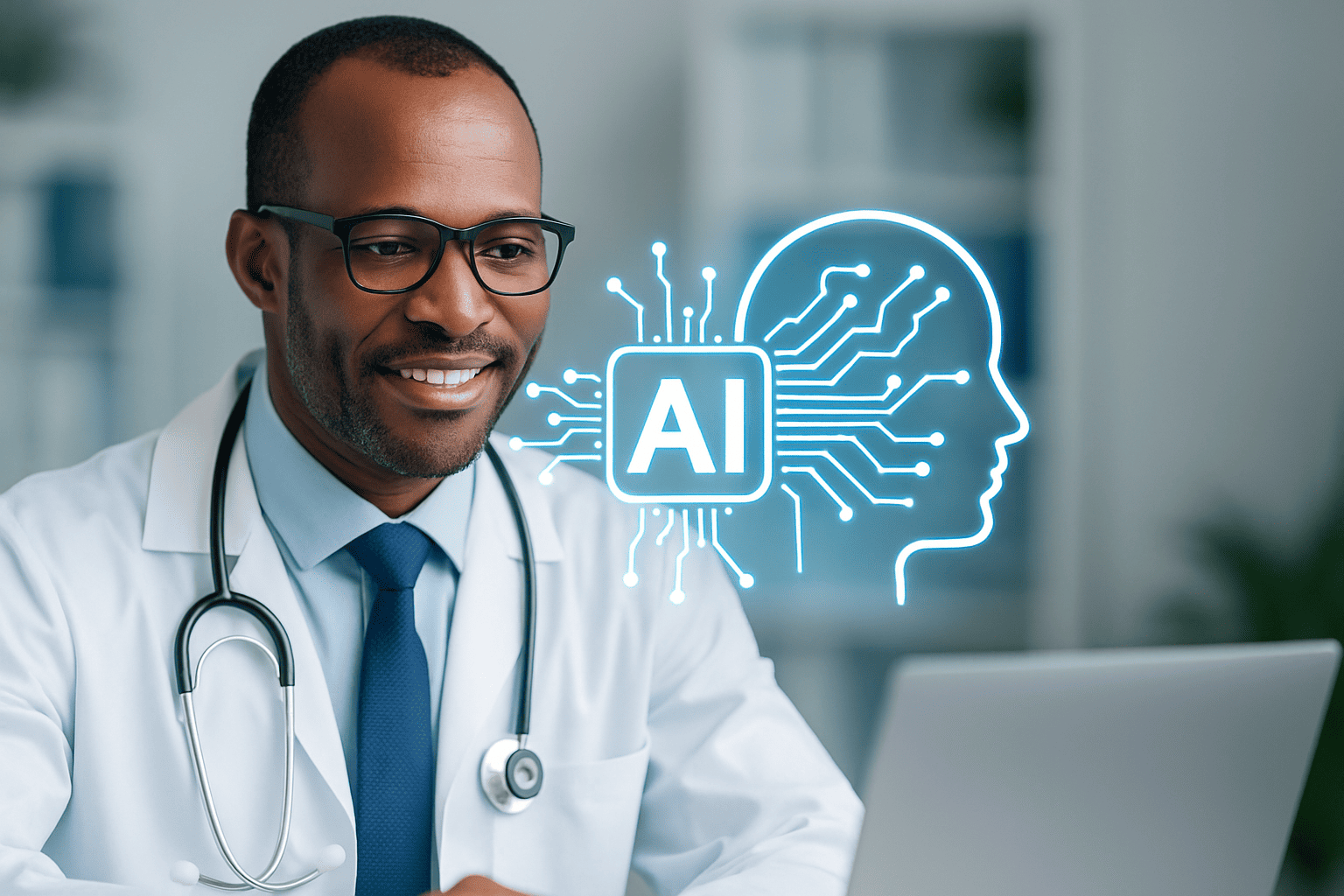Updated on: July 8, 2025
Artificial Intelligence (AI) is no longer a buzzword—it’s becoming an essential tool in the daily lives of healthcare professionals. From improving diagnostic accuracy to automating clinical documentation with Virtual Medical Scribes, the rise of AI Clinicians is reshaping modern medicine.
But what exactly does the term AI Clinicians mean? Are robots taking over healthcare—or are they here to help?
In this article, we explore what AI Clinicians are, how they are transforming patient care, and why integrating AI solutions like Docscrib can be a game-changer for healthcare providers.
What Are AI Clinicians?
AI Clinicians refer to artificial intelligence-powered systems, tools, or algorithms that assist healthcare professionals in clinical decision-making, diagnostics, documentation, and patient management.
While AI is not replacing human doctors, it is becoming an intelligent assistant, helping:
-
Improve decision accuracy
-
Automate time-consuming tasks
-
Personalize patient care
One of the most accessible forms of AI for clinicians today is the rise of Virtual Medical Scribes—AI systems that automate clinical documentation and free up providers from endless paperwork.
Real-World Examples of AI Clinicians in Action
1. AI for Clinical Documentation (Virtual Medical Scribes)
Tools like Docscrib use AI-driven voice recognition and natural language processing (NLP) to automatically generate:
-
SOAP notes
-
Progress reports
-
EHR entries
This technology saves clinicians 2–3 hours daily, reduces burnout, and allows more time for patient interaction.
👉 See Docscrib’s AI Scribe in action:
Book a Free Demo ➔
2. AI in Diagnostics
AI algorithms are helping radiologists, pathologists, and dermatologists by:
-
Detecting abnormalities in imaging scans
-
Assisting in early diagnosis of diseases
-
Reducing diagnostic errors
3. AI in Treatment Recommendations
AI Clinicians can:
-
Suggest personalized treatment plans based on large datasets
-
Predict patient outcomes
-
Support decision-making in complex cases
4. AI in Virtual Health Assistants
Chatbots and AI assistants can:
-
Triage patients
-
Schedule appointments
-
Offer basic medical advice
These tools streamline operations and enhance patient engagement.
Benefits of AI Clinicians
| Benefit | Impact on Healthcare |
|---|---|
| ⏱ Time Efficiency | Less time on repetitive tasks like charting |
| 📊 Data-Driven Decisions | AI analyzes complex data for better outcomes |
| 😊 Reduced Physician Burnout | AI scribes like Docscrib handle tedious documentation |
| 💡 Enhanced Accuracy & Consistency | AI minimizes human error in documentation and diagnosis |
| 💰 Cost-Effective Solutions | Reduces administrative costs and boosts productivity |
Why AI Medical Scribes Matter for Clinicians
The average physician spends 35%–50% of their day on EHR documentation. This administrative burden is a leading cause of:
-
Burnout
-
Decreased patient satisfaction
-
Physician turnover
Virtual Medical Scribes like Docscrib change this by:
-
Capturing real-time patient conversations
-
Generating accurate, complete documentation
-
Integrating with leading EHR platforms
👉 Discover how Docscrib can lighten your documentation load:
Schedule Your Demo Now ➔
Challenges of AI Clinicians
Despite the promise, AI in healthcare comes with challenges:
| Challenge | Solution |
|---|---|
| Data Privacy & HIPAA Compliance | Use certified platforms like Docscrib |
| Algorithm Bias & Transparency | Ensure diverse data and clinical oversight |
| Technology Adoption Resistance | Focus on clinician education and trust |
| Integration with Existing Systems | Opt for AI tools that easily plug into current EHRs |
The Future of AI Clinicians: What’s Next?
Looking ahead, AI Clinicians are likely to:
-
Assist in precision medicine and genomics
-
Predict patient deterioration with real-time monitoring
-
Provide AI-powered telemedicine support
-
Automate complex administrative workflows
But the human element remains irreplaceable—AI will enhance, not replace, the art of medicine.
Is Your Practice Ready for AI Clinicians?
You don’t need to overhaul your entire practice to embrace AI. The easiest entry point is often through AI-driven documentation solutions like Docscrib, which:
-
Reduce time spent on EHRs
-
Improve clinical accuracy
-
Allow you to see more patients without working longer hours
Start small, save time, and improve care with Docscrib’s AI-powered scribe.
Final Takeaway
AI Clinicians represent the next evolution in healthcare—one where human empathy and AI efficiency work hand in hand. By adopting AI-powered tools like Virtual Medical Scribes, clinicians can regain control of their time, improve patient care, and reduce burnout.
If you’re ready to bring AI into your daily workflow, Docscrib is here to help you every step of the way.
